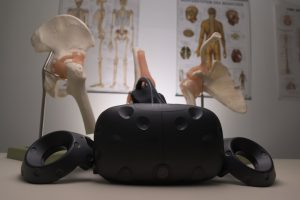In an era defined by rapid technological evolution, the latest innovations are reshaping our world in unprecedented ways. The convergence of various fields, including artificial intelligence, biotechnology, and sustainable technologies, is not merely a trend but a profound transformation that is influencing every aspect of our lives. From the way we communicate to how we manage our health, these advancements are creating new paradigms that challenge traditional norms and open up exciting possibilities.
As we delve into the latest tech innovations, it becomes evident that we are on the brink of a new age, one characterized by enhanced connectivity, improved efficiency, and a deeper understanding of our environment. The pace of innovation is staggering, with breakthroughs occurring at an almost dizzying rate. Companies and researchers are racing to develop technologies that not only solve existing problems but also anticipate future needs.
This relentless pursuit of progress is fueled by a combination of factors, including increased investment in research and development, the availability of vast amounts of data, and the growing collaboration between industries. As we explore the various domains of technological advancement, it is crucial to recognize the interconnectedness of these innovations and their potential to create a more sustainable and equitable future for all.
Key Takeaways
- Introduction to the latest tech innovations showcases the rapid advancements in various fields.
- Artificial Intelligence and Machine Learning advancements are revolutionizing industries and improving efficiency.
- Breakthroughs in Virtual and Augmented Reality are changing the way we interact with technology and the world around us.
- Quantum Computing is the future of data processing, promising faster and more powerful computing capabilities.
- Advancements in Biotechnology and Health Tech are leading to groundbreaking developments in healthcare and improving quality of life.
Artificial Intelligence and Machine Learning Advancements
Transforming Industries with AI and Machine Learning
Artificial intelligence (AI) and machine learning (ML) have become the backbone of modern technology, driving significant advancements across multiple sectors. These technologies enable machines to learn from data, adapt to new inputs, and perform tasks that traditionally required human intelligence. The implications of AI and ML are profound, as they not only enhance operational efficiency but also unlock new capabilities that were previously unimaginable.
Revolutionizing Healthcare with AI
In healthcare, AI algorithms can analyze medical images with remarkable accuracy, assisting radiologists in diagnosing conditions at an early stage. This capability not only improves patient outcomes but also streamlines the workflow within medical facilities. The integration of AI into healthcare has the potential to transform the way medical professionals work and provide care to patients.
Integrating AI into Everyday Life
The integration of AI into everyday applications is transforming consumer experiences. From personalized recommendations on streaming platforms to intelligent virtual assistants that manage our schedules, AI is becoming an integral part of our daily lives. The advancements in natural language processing (NLP) have enabled machines to understand and respond to human language with increasing sophistication. This has led to the development of chatbots and customer service solutions that provide instant support, enhancing user satisfaction while reducing operational costs for businesses.
A Future of Endless Possibilities
As AI continues to evolve, its potential to revolutionize industries—from finance to education—remains boundless, promising a future where intelligent systems augment human capabilities in ways we are just beginning to comprehend.
Breakthroughs in Virtual and Augmented Reality

Virtual reality (VR) and augmented reality (AR) technologies are at the forefront of immersive experiences that blur the lines between the digital and physical worlds. These innovations have gained traction not only in gaming but also in fields such as education, training, and therapy. VR creates entirely simulated environments that allow users to engage in experiences that would be impossible or impractical in real life.
For example, medical students can practice surgical procedures in a risk-free virtual setting, honing their skills before entering an operating room. This hands-on approach enhances learning outcomes and prepares future professionals for real-world challenges. On the other hand, AR overlays digital information onto the real world, enriching our perception of our surroundings.
This technology has found applications in various industries, including retail, where customers can visualize products in their homes before making a purchase. Additionally, AR is being utilized in maintenance and repair tasks, providing technicians with real-time data and instructions as they work on complex machinery. The potential for VR and AR extends beyond entertainment; they are poised to revolutionize how we interact with information and each other.
As these technologies continue to advance, they promise to create more engaging and effective ways to learn, work, and connect.
Quantum Computing: The Future of Data Processing
| Metrics | Data |
|---|---|
| Processing Speed | Exponentially faster than classical computers |
| Qubits | Ability to process and store more data than classical bits |
| Error Rates | Challenges in maintaining stability and reducing errors |
| Applications | Impact on cryptography, drug discovery, and optimization problems |
| Development Stage | Still in early stages of research and development |
Quantum computing represents a paradigm shift in data processing capabilities, harnessing the principles of quantum mechanics to perform calculations at speeds unimaginable with classical computers. Unlike traditional bits that represent either a 0 or a 1, quantum bits or qubits can exist in multiple states simultaneously due to superposition. This unique property allows quantum computers to process vast amounts of data concurrently, making them exceptionally powerful for specific tasks such as cryptography, optimization problems, and complex simulations.
As researchers continue to explore this frontier, we are witnessing the emergence of quantum algorithms that could solve problems deemed intractable for classical systems. The implications of quantum computing extend far beyond theoretical discussions; they hold the potential to revolutionize industries ranging from pharmaceuticals to finance. For instance, drug discovery could be accelerated by simulating molecular interactions at an unprecedented scale, leading to faster development of new treatments.
In finance, quantum algorithms could optimize trading strategies by analyzing market data in real-time with unparalleled precision. However, the journey toward practical quantum computing is fraught with challenges, including error rates and qubit coherence times. Nevertheless, as investments in quantum research grow and collaborations between academia and industry flourish, we inch closer to realizing the transformative potential of this groundbreaking technology.
Advancements in Biotechnology and Health Tech
The intersection of biotechnology and health technology is yielding remarkable advancements that promise to redefine healthcare as we know it. Innovations such as CRISPR gene editing have opened new avenues for treating genetic disorders by allowing precise modifications to DNA sequences. This technology holds immense potential for curing diseases that were once considered incurable, offering hope to millions around the globe.
Furthermore, advancements in personalized medicine are enabling treatments tailored to individual genetic profiles, enhancing efficacy while minimizing side effects. As our understanding of genomics deepens, the prospect of eradicating hereditary diseases becomes increasingly tangible. In addition to genetic advancements, health tech innovations are transforming patient care through wearable devices and telemedicine solutions.
Wearable health monitors provide real-time data on vital signs and activity levels, empowering individuals to take charge of their health while enabling healthcare providers to monitor patients remotely. Telemedicine has gained significant traction, particularly during the COVID-19 pandemic, allowing patients to consult with healthcare professionals from the comfort of their homes. This shift not only improves access to care but also reduces the burden on healthcare systems.
As biotechnology continues to evolve alongside health tech innovations, we can anticipate a future where healthcare is more proactive, personalized, and accessible than ever before.
Sustainable and Eco-Friendly Tech Innovations

As concerns about climate change and environmental degradation intensify, sustainable and eco-friendly technologies are emerging as critical solutions for a more sustainable future. Innovations in renewable energy sources such as solar panels and wind turbines are becoming increasingly efficient and cost-effective, enabling a transition away from fossil fuels toward cleaner alternatives. The development of energy storage solutions, such as advanced batteries and grid-scale storage systems, is essential for addressing the intermittent nature of renewable energy sources.
These advancements not only contribute to reducing greenhouse gas emissions but also promote energy independence and security. Moreover, sustainable practices are being integrated into various industries through technologies such as circular economy models and smart agriculture solutions. The circular economy emphasizes minimizing waste by reusing materials and designing products for longevity rather than disposability.
In agriculture, precision farming techniques utilize data analytics and IoT devices to optimize resource use while minimizing environmental impact. These innovations enable farmers to make informed decisions about irrigation, fertilization, and pest control, ultimately leading to increased yields with reduced resource consumption. As society increasingly prioritizes sustainability, these eco-friendly tech innovations will play a pivotal role in shaping a greener future for generations to come.
The Impact of 5G Technology on Communication and Connectivity
The rollout of 5G technology marks a significant leap forward in communication infrastructure, promising faster speeds, lower latency, and greater connectivity than ever before. This next-generation wireless technology is set to revolutionize how we interact with devices and each other by enabling seamless communication across various platforms. With download speeds potentially exceeding 10 Gbps—up to 100 times faster than 4G—5G facilitates real-time data transfer that is crucial for applications such as autonomous vehicles, smart cities, and remote surgeries.
The implications for industries ranging from entertainment to logistics are profound; businesses can leverage this enhanced connectivity to optimize operations and deliver innovative services. Furthermore, 5G technology paves the way for the Internet of Things (IoT) to flourish by connecting billions of devices simultaneously without compromising performance. This interconnected ecosystem allows for smarter homes equipped with intelligent appliances that communicate with one another for improved efficiency and convenience.
In healthcare settings, 5G enables remote monitoring devices to transmit patient data instantaneously to healthcare providers, facilitating timely interventions when necessary. As 5G networks continue to expand globally, they will serve as the backbone for future technological advancements—transforming how we live, work, and connect in an increasingly digital world.
If you’re interested in understanding how technology websites manage user data and ensure privacy, you might find the privacy policy of Bongoc particularly enlightening. It provides detailed insights into the types of information collected, how it’s used, and the measures in place to protect your privacy. You can read more about their specific practices and guidelines by visiting their Privacy Policy page. This is especially useful for tech enthusiasts who want to stay informed about their digital rights and data protection.
FAQs
What is tech?
Tech is a shorthand term for technology, which refers to the application of scientific knowledge for practical purposes, especially in industry.
What are some examples of tech?
Examples of tech include smartphones, computers, software, artificial intelligence, virtual reality, drones, and many other electronic devices and systems.
How does tech impact our daily lives?
Tech impacts our daily lives in numerous ways, from communication and entertainment to transportation and healthcare. It has revolutionized the way we work, learn, and interact with the world around us.
What are the different types of tech industries?
The tech industry encompasses a wide range of sectors, including software development, hardware manufacturing, telecommunications, biotechnology, and many others.
What are the latest trends in tech?
Some of the latest trends in tech include the rise of artificial intelligence and machine learning, the development of 5G technology, the growth of the Internet of Things (IoT), and the increasing focus on cybersecurity and data privacy.

















